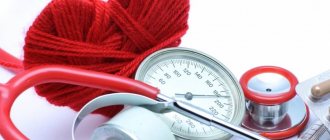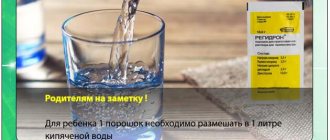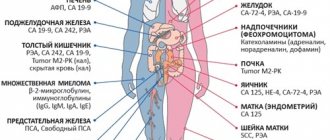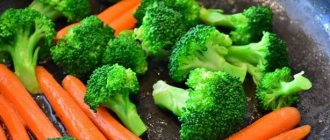Every person at least once in his life has experienced unpleasant painful conditions associated with poisoning. This disease greatly depletes the body in a short period of time. Nausea, vomiting and diarrhea are constant “companions” of poisoning.
As a result, pathological weakness and dehydration occur, which can lead to complications. Therefore, at the first signs of an insidious disease, measures should be taken immediately. A rest regimen and a gentle diet help a lot. More about this.
What should you do if you have symptoms of poisoning?
If poisoning occurs, immediate action must be taken.
There are general recommendations that will help bring the body back to normal and avoid unpleasant consequences. So:
- First you need to rid yourself of unnecessary stress. It would be appropriate to take time off from work, since the work process requires energy and strength, which are not enough in a state of poisoning. Providing yourself with a rest regime will be a wise decision.
- Many experts agreed that diarrhea that occurs during the period of poisoning should not be stopped with special drugs (for example, Lopedium or Imodium). Why? According to recent studies, it is found that in this condition it is better if the body gets rid of toxins (through the process of diarrhea) naturally. Eliminating diarrhea with medications may require additional treatment later.
- If you experience severe vomiting or loose stools, you can resort to a folk recipe - drink a glass of freshly squeezed pumpkin juice. This greatly helps reduce the intensity of symptoms of poisoning and improves the patient’s condition.
- A very simple but effective way to remove toxins from the body is to use the well-known activated carbon or Enterosgel. Charcoal is usually taken at the rate of 1 tablet per 10 kg of body weight.
- Naturally, at the “peak” of poisoning, when symptoms of nausea and vomiting are clearly manifested, loose stools are observed, it is absolutely forbidden to eat food, not to mention drinking alcohol and other harmful substances.
- When the acute period subsides, it is appropriate to take probiotics, which help restore normal gastrointestinal microflora. Such medicines include: “Lactobacterin”, “Linnex”, “Enterosgel”, “Hilak Forte”, etc. The annotations for the drugs indicate the required dosages.
- What is the difference between ordinary (household) poisoning and poisoning due to damage to the body by pathogenic microorganisms?
- It should be noted that one must learn to differentiate (separate) ordinary household poisoning from poisoning caused by harmful bacteria and viruses. What is the difference? These two pathological conditions differ in severity. Damage by harmful microorganisms is much more serious and can cause diseases that affect organs and systems. Such infections include, for example, hepatitis and salmonellosis. In these cases, the already known symptoms (vomiting, diarrhea and nausea) are accompanied by hyperthermia (high temperature), severe pain in the epigastric region, sometimes cramps and difficulty breathing. This condition requires immediate medical intervention.
Household poisoning occurs, as a rule, due to the consumption of low-quality products or products that have expired. Simple poisoning occurs much more easily (as already mentioned above) and does not pose a particular threat to human health and life.
Dehydration manifests itself:
- increasing thirst;
- dry mucous membranes;
- increased heart rate;
- headache;
- decreased frequency of urination and dark yellow color of urine.
What signs of food poisoning will appear in each specific case may also be determined by the specifics of the toxin. For example, lead intoxication is manifested primarily by damage to the nervous and hematopoietic systems, and not by symptoms associated with the gastrointestinal tract. You also need to remember that food poisoning can be both acute and chronic. In the latter case, toxic compounds enter the body over a long period of time, but in small doses. The clinical picture will differ significantly from the picture of acute poisoning and will more closely resemble the course of a chronic disease.
What can you eat after poisoning?
After poisoning, you need to eat food that is easy on the stomach.
So, if the acute period has passed and the body gradually begins to “recover” from the stress it received, it is also necessary to gradually begin to eat.
What can you eat? If it becomes much easier and a slight feeling of hunger appears, then doctors advise not to immediately overload the stomach, but to eat foods that will be easily digested. These products include regular crackers and tea without sugar.
The next meal may consist of light chicken broth without adding vegetables or spices. You can also eat liquid porridge and mashed potatoes, but you should not add salt, milk or butter to them.
Dietary meals should be eaten in small portions so as not to overload the already damaged stomach. Sometimes 2-4 tablespoons per serving may be enough. This diet is acceptable on the first day after poisoning.
Signs of food poisoning
Symptoms of poisoning are largely similar, regardless of the cause. They are distinguished by intensity and severity depending on the type of toxic substance, age (poisoning in an adult is easier than in children and the elderly) and the amount eaten. However, signs of an inflammatory process in the walls of the intestines and stomach, as well as manifestations of general intoxication of the body, almost always occur.
Signs of poisoning:
- chills, diarrhea, nausea with vomiting;
- feeling unwell, malaise, weakness;
- bloating, painful cramping sensations;
- rise in temperature (usually small).
Severe poisoning, for example, with botulinum toxin, is accompanied by symptoms of damage to the nervous system:
- dry mouth and difficulty swallowing;
- muscle weakness;
- blurred vision, double vision;
- loss of coordination of movements.
What should you drink if you are poisoned?
Rosehip decoction will help quickly get rid of the symptoms of poisoning.
In this situation, the first thing you need to do is drink plenty of fluids. It is better if it is purified or boiled water.
Drinking plenty of fluids will help remove toxins from the body as quickly as possible.
And if normally a healthy person is supposed to drink from 1.5 to 1.8 liters of liquid per day, then after poisoning the recommended volume should be increased to 2.5 liters. You can also use:
- rosehip decoction;
- dried fruits compote;
- black tea without sugar and weakly brewed green tea;
- homemade jelly;
- infusion of chamomile and other herbs that have a calming effect.
It is not recommended to drink coffee, as it has a pronounced diuretic effect, which can complicate the condition of the body if it has lost enough fluid.
Drink plenty of fluids
It is known that the main danger of food poisoning is sudden loss of fluid caused by diarrhea and vomiting. In addition, the body loses minerals and electrolytes important for metabolic processes. To restore balance, the doctor usually prescribes rehydron and drinking boiled water in large quantities. After you feel better, water can be replaced with fruit and berry infusions, mint or ginger infusion without sugar. It is advisable to temporarily exclude tea, coffee, cola and other drinks containing caffeine and acids from the diet. You can drink milk if there is no negative reaction of the body to this product.
What is forbidden to eat and drink after poisoning?
- Naturally, alcoholic drinks should be completely excluded. They put a heavy load on the liver and kidneys, which are already damaged as a result of poisoning.
- Those with a sweet tooth will have to do without their favorite buns and desserts for a while. After poisoning, it is allowed to drink a small amount of honey or jam with tea.
- The intake of dairy and fermented milk in the first week after poisoning should be limited. These products will be useful after recovery to restore normal gastrointestinal microflora.
- Raw vegetables and fruits have a laxative effect, which is completely contraindicated in case of poisoning. Only 4-5 days after an exacerbation, you can try to eat soft and non-acidic fruits, for example, bananas. However, you shouldn't get carried away with them. Baked apples, boiled and grated vegetables will be useful.
- It is better to avoid egg dishes for a while. The only exception is steamed omelettes.
- It is not recommended to eat oatmeal, pearl barley and millet porridge because they are rich in fiber, which is difficult for the gastric mucosa to accept after poisoning.
- It is better to prepare juices, compotes and jelly at home and with a minimum amount of sugar. They shouldn't be sour. They must be used within reasonable limits. It is better to give preference to jelly and dried fruit compotes.
- You should avoid boiled and smoked sausages, as the preservatives they contain can negatively affect a weakened stomach.
- Avoid eating fried food after poisoning. It is useful to cook foods in a water bath, boil them, stew them and bake them.
Best Recovery Products
In the first days of treatment, a person should eat foods that stimulate the removal of toxins - detox. These include:
- fiber-rich zucchini;
- rice with adsorbent properties;
- oranges, which prevent the formation of toxins from bonding with free radicals.
Products that remove toxins from the body after poisoning.
The list of useful products is supplemented by:
- bananas, apples, pears;
- beets, pumpkin, carrots;
- scrambled eggs;
- oatmeal, buckwheat;
- infusion of rosehip, chamomile.
When selecting products for a children's diet, be sure to consult a pediatric nutritionist who will select an individual nutrition plan.
Pathogens of food poisoning
The main bacteria whose toxins can cause foodborne illnesses are:
- Staphylococcus aureus – Staphylococcus aureus. Produces a toxin that affects the intestines. Widely distributed in the environment, it is well preserved and multiplies in food products, which provide a nutrient medium for it. In order not to create favorable conditions for the growth of bacteria and the production of toxins, prepared food should not be stored at room temperature for more than two hours. This is especially true for products with mayonnaise, protein or butter cream, meat and fish, minced meat products, dishes containing eggs, milk and other dairy products, soups.
- Bacillus cereus. Produces enterotoxin and emetic toxin. The disease is usually associated with eating rice dishes (raw rice is often contaminated with Bacillus cereus). The pathogen multiplies in dishes left after cooking at room temperature. Bacillus cereus toxin is heat stable, and repeated boiling of the dish does not destroy it.
- Clostridium perfringens. This foodborne toxic infection is associated with the consumption of undercooked meat, poultry and legumes. The disease usually lasts no more than a day and goes away without treatment.
- Salmonella Salmonella is an extremely resilient microorganism that survives in the external environment for quite a long time. Withstanding freezing, salmonella poses a danger to the body at the stage of defrosting meat, when dishes and sinks become contaminated with thawed bacteria.
2.How can harmful microbes get into food?
- During meat processing. There are bacteria in the intestines of animals that humans use as food. This is normal, but sometimes bacteria also get on those parts of animals (meat) that we eat.
- Because of the water that is used to water or wash fruits and vegetables. If there are microbes in this water (most often these are microbes from animal manure and household wastewater), they can transfer to the food.
- While cooking. If items that have germs on them come into contact with food, the germs can be transferred to them. For example, if you use the same cutting board to cut vegetables and raw meat, germs can transfer to the vegetables. The same thing happens if you don’t wash your hands well after cutting meat.
Visit our Therapy page
Nutrition rules
After poisoning, you need to eat up to 7 times a day in the first days, in very small portions. Subsequently, the frequency of meals is reduced to 3-4, and the daily and portion volume is gradually increased. The temperature of the food is room temperature or warm; cold or hot food is not allowed, as irritation or damage to the mucous membrane, which is still very vulnerable during this period, is possible.
In no case should you overeat; it is important to observe the subjective state, a feeling of heaviness, fullness, possible nausea or the urge to vomit, and stool disturbances. If such signs appear, be sure to inform your doctor.
After the fifth day, if you feel well, a gradual return to your usual diet is possible.
If the intestinal microbial flora is disturbed, doctors recommend taking probiotics or prebiotics, for example Laktofiltrum, to normalize it.






